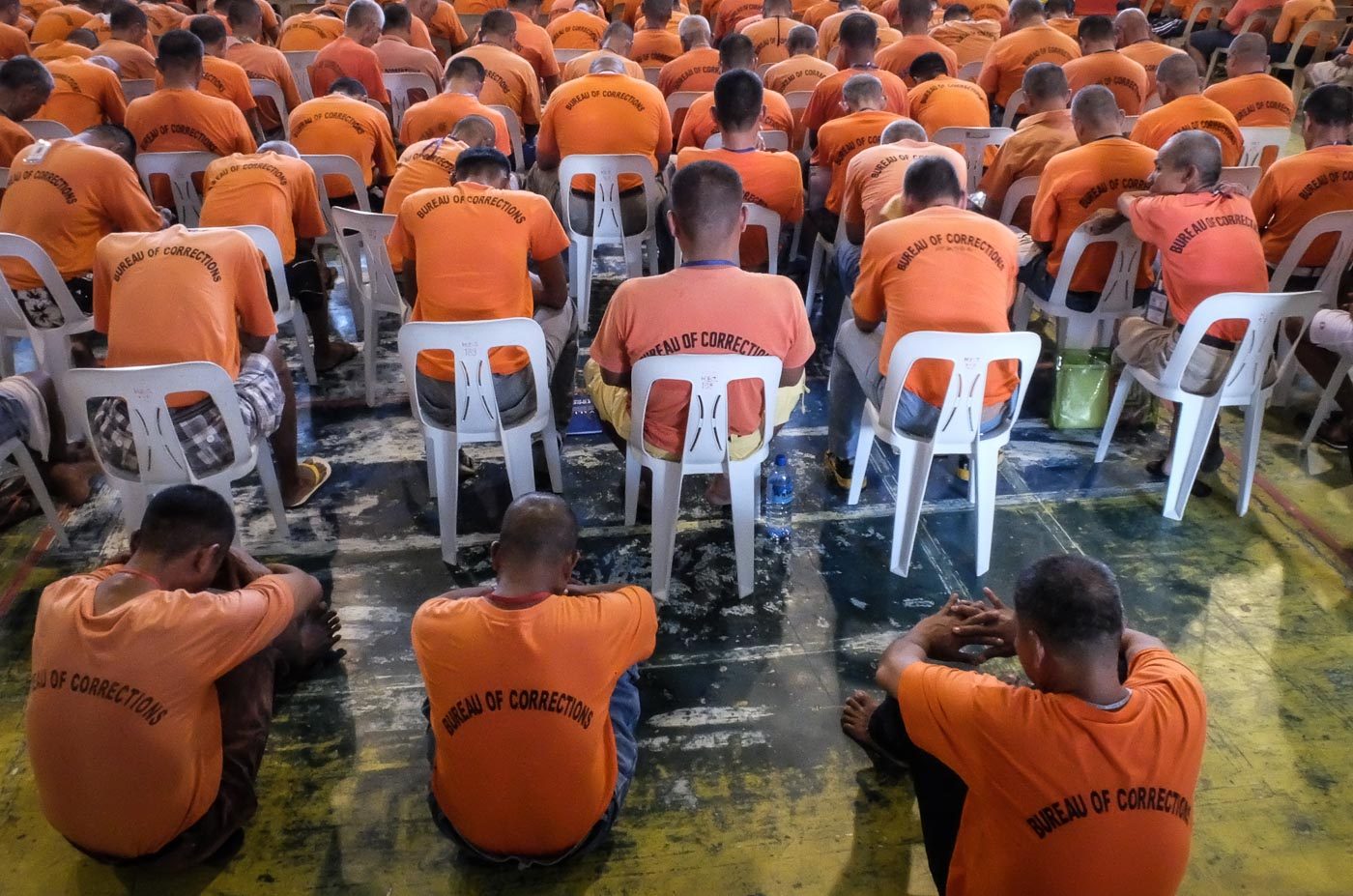SUMMARY
This is AI generated summarization, which may have errors. For context, always refer to the full article.

MANILA, Philippines – Qualified convicts imprisoned in the early 1990s can be released 19 years ahead of their prison terms under the now retroactive law on Good Conduct Time Allowance (GCTA).
The SC ruling that made Republic Act No. 10592 or the GCTA law retroactive or applicable to convicts sentenced prior to its 2013 enactment, will lead to the mass release of around 11,000 National Bilibid Prison inmates, according to Bureau of Corrections (BuCor) Director Nicanor Faeldon.
Justice Secretary Menardo Guevarra said the BuCor has started processing inmates convicted in 1993, or those who have been in jail for nearly 26 years.
“It’s first in, first out. BuCor said they started processing 1993 Persons Deprived of Liberty (PDLs). DG Faeldon said around 200 PDLs a day (are being processed),” Guevarra said.
One of the potential beneficiaries is former mayor Antonio Sanchez of Calauan, Laguna, who was sentenced to 9 terms of reclusion perpetua for the rape and double murder of college students Eileen Sarmenta and Allan Gomez; as well as the double murder of father and son Nelson and Rickson Peñalosa.
Article 70 of the Revised Penal Code sets a maximum detention period of 40 years, meaning the good conduct time allowance is deductible from a set period of 40 years even for Sanchez who was sentenced to multiple reclusion perpetua.
The GCTA law
For an individual who has been in jail for 25 years and who had shown good behavior in prison, at least 19 years will be slashed off his jail term as provided under the law.
Section 3 of RA 10592 provides for the following:
- For the first two years of imprisonment: For each month of good behavior, 20 days will be deducted from the total sentence. If a convict behaved every month, 480 days or roughly 1 year and 3 months will be deducted from his prison term.
- From the 3rd to the 5th year: For each month of good behavior, 23 days will be deducted, or a total maximum deduction of 828 days or roughly 2 years and 3 months from the prison term.
- From the 6th year to the 10th year: 25 days for each month of good behavior or a total deduction of roughly 1,800 days or roughly 4 years and 1 month from the prison term.
- For the 11th and successive years: A month of good behavior equals a 30-day deduction. This means that a person serving 25 years who was behaved every month from his 11th to 25th year would get a prison term reduction of 14 years and 7 months.
- In addition, an inmate shall get 15 days additional reduction for each month of study, teaching, or mentoring service.
“Mag-bebenefit din ang penitentiaries natin dahil magkakaroon ng decongestion dahil ‘yung mga puwede nang lumaya because of good conduct makakalaya na kaagad (Our penitentiaries will benefit because there will be decongestion since those who can be released on good conduct, can be freed immediately),” Guevarra said in an earlier interview.
Based on the latest data, the 7 penal colonies house around 41,000 inmates, 26,000 of which are in Bilibid. The Bilibid has a maximum capacity of only 8,508.
Clara Sarmenta, the mother of Sanchez’ victim Eileen, has demanded the government to show them proof of the convict’s good conduct records.
Human rights lawyer Edre Olalia has suggested to amend the law so it doesn’t cover certain heinous crimes like the Sanchez-orchestrated rape and double murder. – Rappler.com
Add a comment
How does this make you feel?
There are no comments yet. Add your comment to start the conversation.